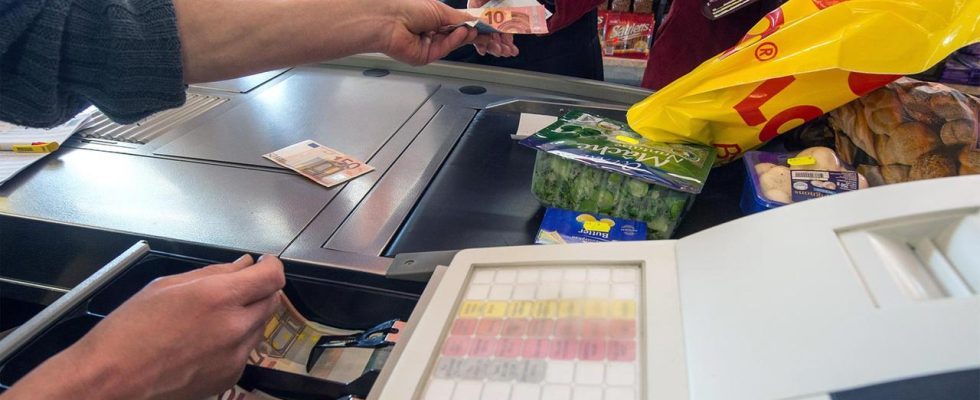Inflation in the euro area is rising much more slowly thanks to the sluggish economy and the European Central Bank’s tightening policy. It recently reached its lowest value since July 2021.
Inflation in the euro zone weakened significantly in November. According to an initial estimate, consumer prices in November were 2.4 percent higher than in the same month last year, as the Eurostat statistics office announced today in Luxembourg. In the previous month, inflation was 2.9 percent; a year ago it was 10.1 percent.
“Amid the series of weak economic data, the European inflation figures provide a ray of hope,” said KfW chief economist Fritzi Köhler-Geib about the latest figures. Nevertheless, a look at core inflation in particular shows that price pressure is still too high.
Core inflation at 3.6 percent
Core inflation, which excludes volatile energy and food prices as well as alcohol and tobacco, also fell in November. After 4.2 percent in October, core inflation was only 3.6 percent in November. According to many economists, core inflation reflects basic inflation and therefore represents the inflation trend somewhat better than the overall rate.
Although food and beverages were still significantly more expensive than a year ago, the price increase weakened from 7.4 to 6.9 percent. Prices for services and other goods also rose more slowly than in the previous month. Energy prices fell again significantly by 11.5 percent.
2.0 percent target within reach
This means that the European Central Bank’s (ECB) medium-term goal of an inflation rate of 2.0 percent is increasingly within reach. The euro watchdogs have raised interest rates ten times in a row since the summer of 2022 in the fight against a massive price surge. However, at their most recent meeting in October, they decided to take a break from interest rates due to the weak economy and the already sharp decline in price pressure.
For the last interest rate meeting this year on December 14th, experts expect that the Euro Central Bank will once again keep its feet still. The deposit rate that banks receive from the central bank for parking excess funds, which sets the trend in the financial market, is now 4.00 percent. This is the highest level since the start of the monetary union in 1999.

